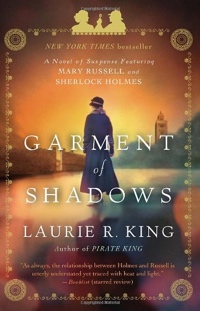
Lightning doesn’t strike again in this conclusion to the trilogy that began promisingly with the first half Divergent. In that beginning, we set out from a wild premise – an urban dystopia about a society built entirely on high school aptitude tests – and enjoyed some fine world-building. Unfortunately, the crazily schematic world plan turns out to mask the author’s weakness for thin characterization. The world of Divergent is childish but convincing, a society bound together by summer camp ritual and tasty treats, and its depth perfectly suits the stock characters and stock plot points. But Roth demolishes the world and, without the schematic depth, the cardboard sags.
Worse, it’s now clear that Roth created a love interest for her heroine and proceeded to fall in love with him; this is Tris’s story but we’re so enamored of her friend Tobias that Tris is pushed to the background. As she fades into a supporting role, Roth needs to reach for some character traits to attach to her. Tris has already led two revolutions, and tomorrow will bring a third. She has been isolated from her beloved, they have reconciled, and now at the end of the world and at childhood’s end they finally fall into each other’s arms and into bed – and Tris collapses into a sudden anxiety of self-doubt and loathing over the size of her breasts. Never mind the absurdity of the idea that young Dauntless, daredevils who live for today and scorn thought of the future, would “save themselves.†The world is ending. Their friends and family and comrades have been dying almost daily. We’ve spent nearly a thousand pages establishing Tris as a wonderfully competent soldier with a preternatural ability in combat to do what must be done and the athletic talent to do it; now, as she finally undresses her beloved, she’s panicked because she’s too flat-chested?
The first half of Divergent is a terrific novella. Get the book, read it through the end of bootcamp, and then work out what happens for yourself.